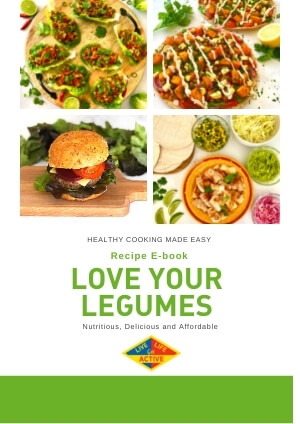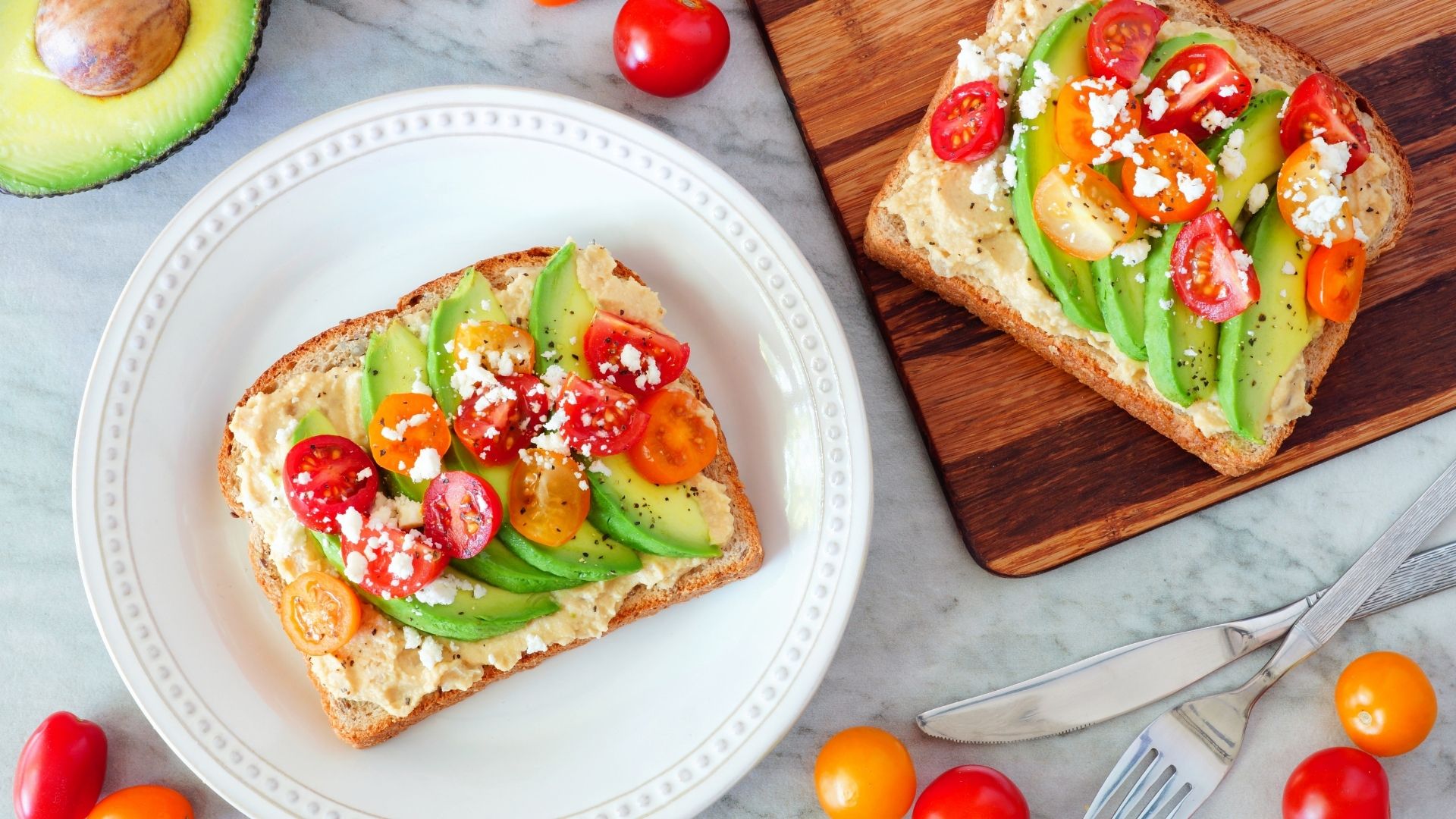Is Sugar Addictive? Sugar Myths and Truths
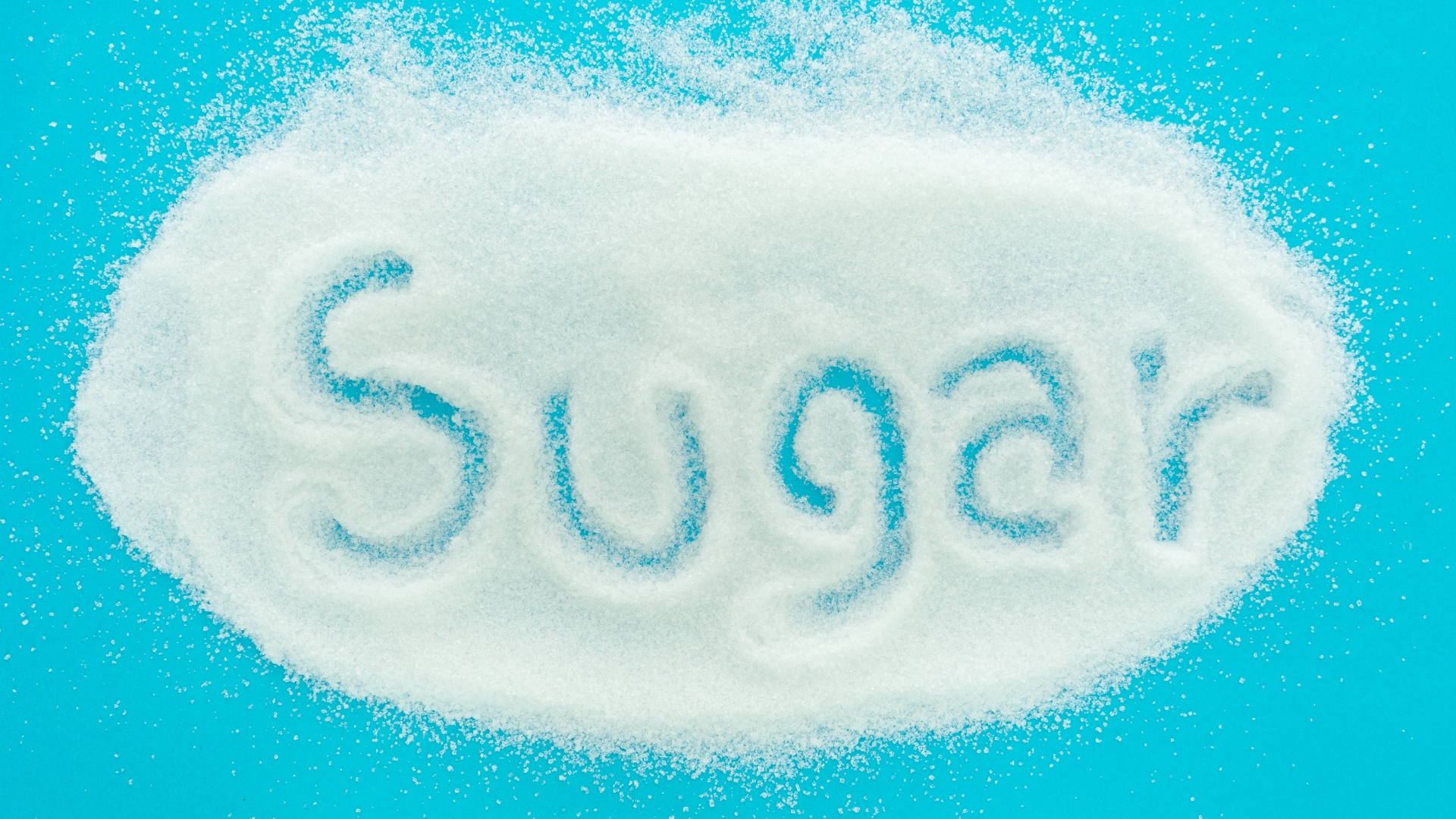
How addictive is sugar really? This week we bust some myths around sugar and help you to build a better relationship with sugary foods so you can live your healthiest and happiest life.
How addictive is sugar?
Foods high in sugar may feel addictive, but this is most likely because they are ‘highly palatable’, which means they are extremely pleasing and enjoyable to eat. It’s not sugar alone which creates this extremely pleasing ‘highly palatable’ food, it’s also salt and fat.
If you think about eating a piece of chocolate, it’s the combination of the sweet flavour (from the sugar), creamy flavour (from the fat) and the way it melts in your mouth that makes it feel ‘addictive.’ If you have a bowl of pure sugar sitting in front of you, you’re probably less likely to sit there and eat it by the spoonful. However, if you have a bowl of ice cream in front of you, it’s probably a different story!
It’s not just sugary food that has this ‘addictive’ effect. Some people may feel this way about a bowl of french fries because they are salty, crispy and fatty. It’s the combination of flavours and textures that make food an enjoyable and ‘moreish’ experience. Research has shown these ‘highly palatable’ foods can make changes to our brain and hormones, which can give that addictive feeling and make it hard to stop eating.
Check out our 3 tips to help you get that portion control under control.
Am I a sweet tooth or am I addicted to sugary foods?

Everyone has a different sensitivity and preference to flavours. For example, some people are more sensitive to sweet foods, which means they find high sugar foods far too sweet to be enjoyable. Some people may be more sensitive to too much salt. Some of us may really enjoy both sweet and salty foods. Everyone is slightly different.
The majority of us are attracted to sweet foods because they are high in energy (calories) and our bodies inherently recognise this as a survival mechanism from back in the caveman days when food was scarce.
There are also other reasons people may feel addicted to certain foods, such as eating disorders, where there may be underlying mental health concerns that cause them to have an addictive relationship with food. If this is something you are worried about please contact https://butterfly.org.au/ for support. They are here to help!
What happens when you give up sugar? Do you stop wanting it after a while?
Your taste buds can certainly become desensitised to sugar if you give it up for a while or eat less of it. If you have given up sugar or reduced your sugar intake for some time, you may find that a piece of cake or chocolate tastes much sweeter than you remember, it may even be too sweet. This may also mean you now crave sugary foods less.
It’s important to understand that you don’t need to give up sugar, lots of healthy foods like fruit and vegetables naturally contain sugar and are vital to our health. Processed foods high in sugar, fat and salt should definitely be limited but can be enjoyed in small amounts here and there.
Do some foods contain unexpected amounts of sugar? What are some of the culprits?
You can find lots of added sugar in cereals, yoghurts and muesli bars. It’s always best to look at the nutrition label on these foods. Try to choose foods that have less than 15 grams of sugar per 100 grams. Added sugar can also be found in things like pre-made sauces and dips. Another tip is to look at the ingredients label, and if sugar, fructose or any type of ‘syrup’ is the first ingredient on the list, then you’ll know that this food’s main ingredient is sugar. Find out more about reading nutrition labels here.
It’s always best to make your own food from scratch using whole ingredients, but this is not always realistic with our busy lifestyles, so try to opt for foods with lower amounts of sugar. If a little bit of sugar in a salad dressing or sauce is going to help you to eat a lot more veggies then that is okay in our book!
What are the healthiest sugar alternatives?
At the end of the day, sugar is sugar. Things like honey and syrups will all break down into the same thing in your body. Raw honey does have some added extra health benefits that are good for our immune system – but this is only if it is consumed raw and not heated. You may want to use honey or maple syrup for a different flavour.
Artificial sweeteners like stevia, xylitol and sucralose have no calories, so can be a good low energy option if you don’t mind the taste. But just because something is labelled ‘sugar free’ doesn’t mean it’s healthy, it usually contains a whole lot of extra additives and preservatives that make it far more processed and less wholesome than its normal sugar alternative.
All sugary and processed foods should be consumed sparingly, as it’s our high fibre, wholesome foods that are going to fuel our minds and bodies in the best way.
Are there any other myths around sugar I should know about?
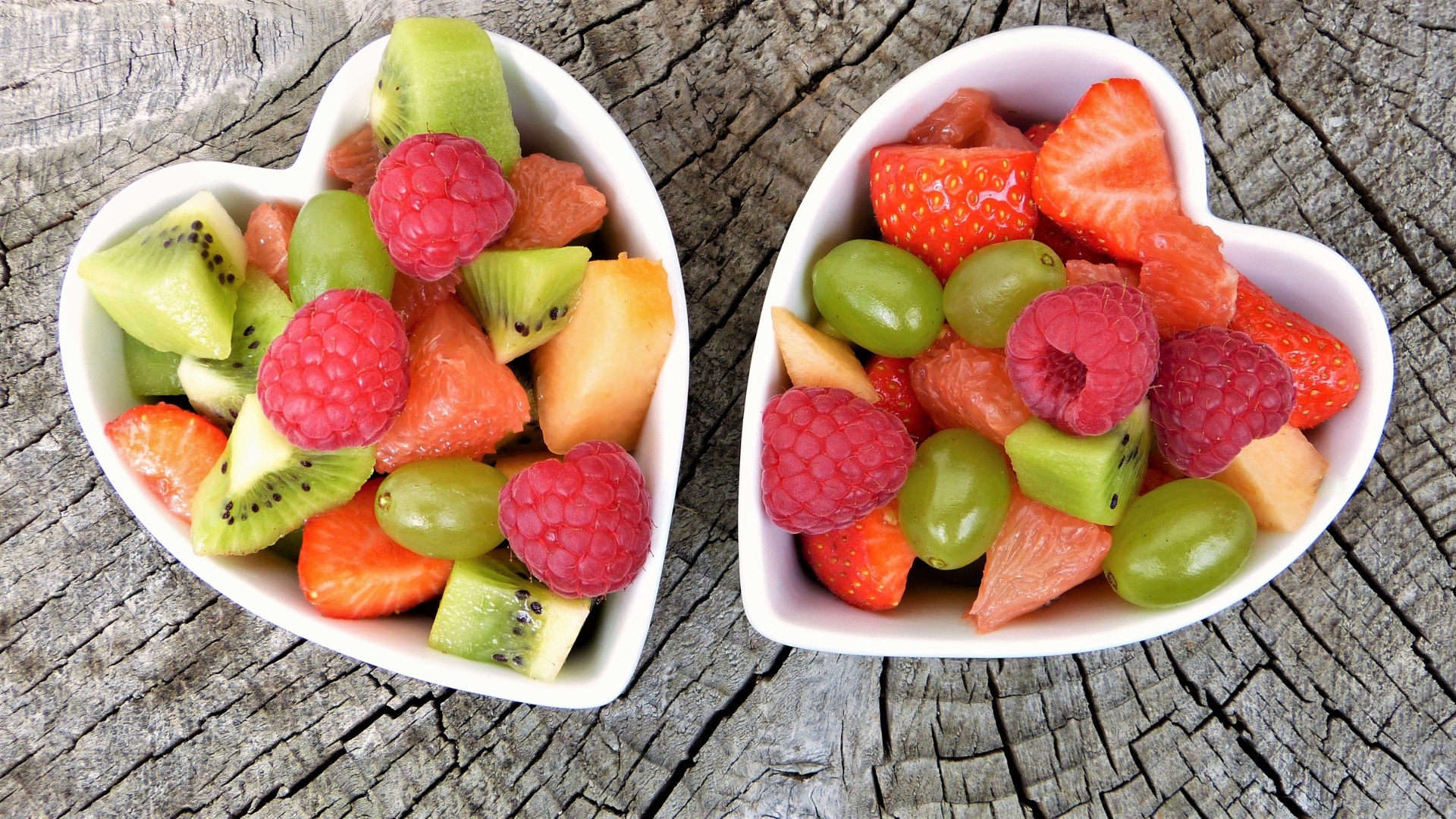
Sugar is not the devil, it’s naturally found in foods that give us energy and help our brain function properly. The science of nutrition is far too complex to vilify a single nutrient like sugar. Good nutrition is all about eating healthy foods that contain a variety of nutrients (carbohydrates, fat, protein, vitamins, and minerals), not individual nutrients on their own.
You should never feel like you have to cut anything completely out of your diet. You can enjoy chocolate, ice cream and cakes here and there and don’t have to feel guilty about it. As long as your priority is to fill your body with lots of fruit, veggies and wholesome foods, having a small amount of sugary food here and there is perfectly okay.
You will notice when you’re eating more wholesome foods and less processed foods, you will have more energy, be in a good mood and feel better about yourself.
Also, there’s no need to restrict yourself on fruit! Fruit in its wholesome natural form is full of fibre and lots of antioxidants that keep your body strong and healthy.
Need to make some more healthy eating changes?
Download our Love Your Legumes recipe e-book. We make healthy versions of your favourite meals and boost their nutritional value by adding in legumes. Start feeling healthier now!
Love Your Legumes Recipe e-book
Download your very own food diary!
Keep a track of your food, mood and exercise. Start to make healthier changes, then start to see the changes in your mood, energy and body. This is a great place to start if you are wanting to make real change.
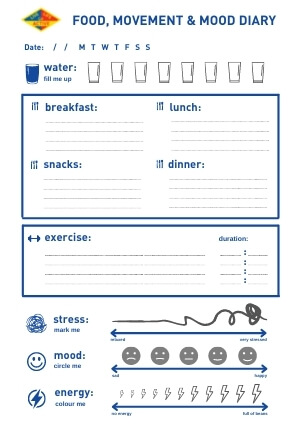
Download Here
Need some more inspiration?
Head to our RECIPE VIDEO HUB – we have lots of healthy snack ideas you might want to try!
Download our family healthy eating plan to find a 7-day meal plan full of yummy healthy eating or login to download your personal nutrition plan to help create a healthier eating pattern. This is FREE to all members.
Not a member? Register now for FREE access to outdoor and online fitness classes, live guided meditations, wellness videos, recipes and more!
Sources:
https://www.ncbi.nlm.nih.gov/pmc/articles/PMC5174153/
https://www.ncbi.nlm.nih.gov/pmc/articles/PMC6234835/


